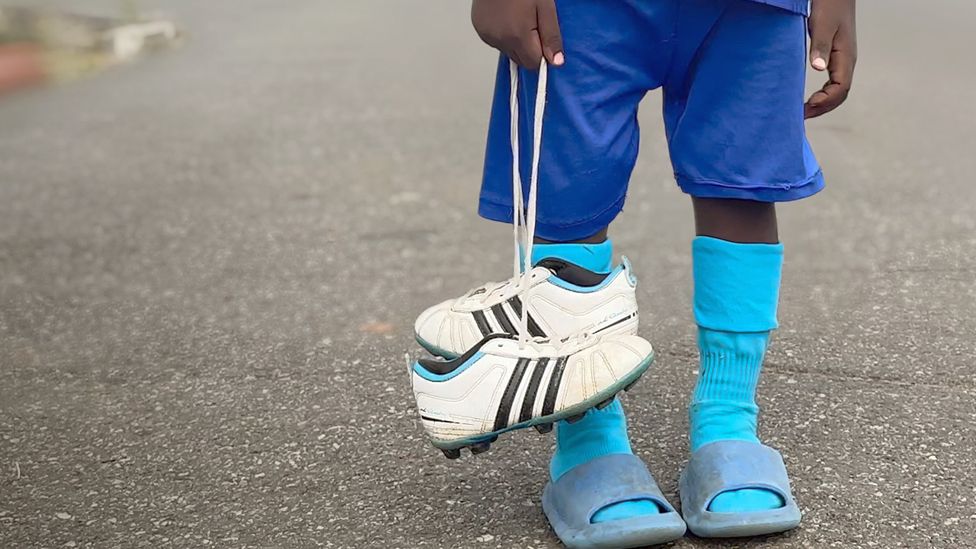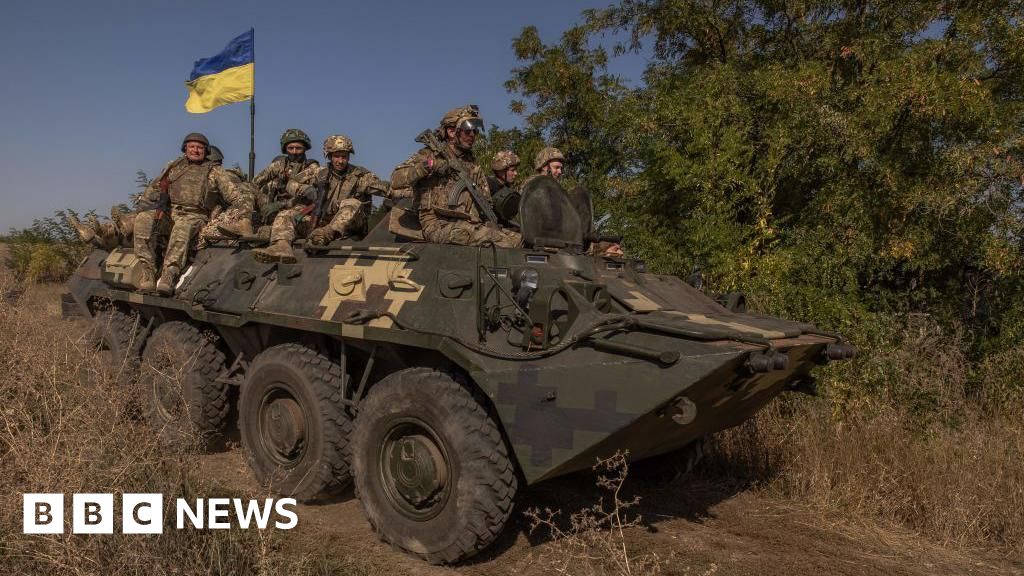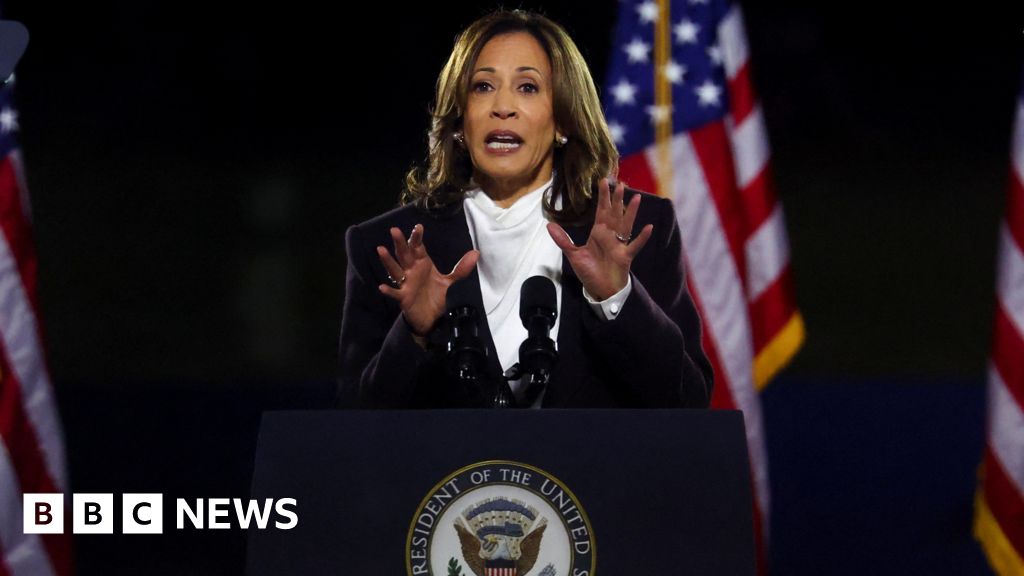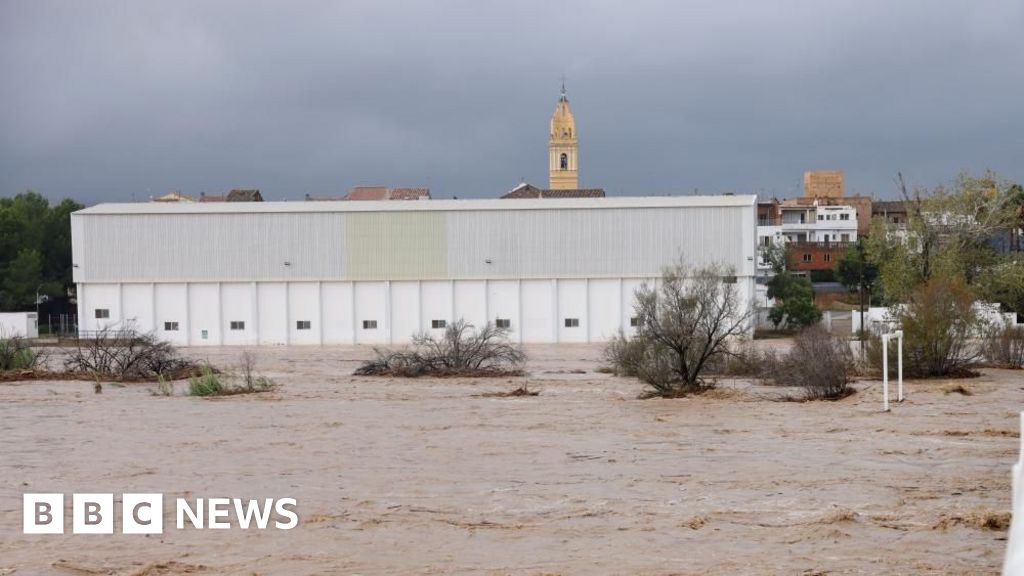ARTICLE AD BOX

By Suzanne Vanhooymissen & Tamasin Ford
BBC Africa Eye
Football's governing bodies face accusations they failed to protect young victims of sexual abuse in Gabon. BBC Africa Eye spoke to more than 30 witnesses who told of a network that has plagued all levels of the game for three decades.
Warning: This article contains details some readers may find upsetting
The allegations of sexual abuse in the central African country of Gabon date as far back as the early 1990s.
One victim, who wanted to remain anonymous, described what happened to him as a teenager at an Under-17 football camp. He said he and his best friend were woken up in the middle of the night and taken to a room with red lights, full of naked man.
"They started touching me and my friend and I just didn't understand. I started to pray. I wanted to get out, but the door was locked. They grabbed me and threw me on to the floor. There were two security men. It was like they were prepared," he said.
"I saw how they started to rape my friend. I looked him in the eye, and he looked back at me as if to say: 'Let's just go along with them and get it over with.' I cried and screamed and screamed and screamed.
"They told me I would never be selected to play ever again and that if I dared speak to anyone about what happened, my family would be killed."
He never played for Gabon again.
Former Gabon international Parfait Ndong, pictured here at his academy, says he was ignored when he raised the alarm
BBC Africa Eye heard there were several attempts to alert authorities to what was happening over the years.
In 2019, former Gabon international Parfait Ndong returned home to set up his academy Jardin de football au Gabon. With 45 caps to his name and an illustrious playing career in Europe, he is a respected figure in Gabonese football. When he found out what was happening, he said he alerted authorities.
"I took all the steps I possibly could," he told the BBC, adding that he spoke to the president of the league, the president of the national football federation, known as Fegafoot, and the sports minister at the time.
He said after these efforts were ignored, he turned to local media: "No-one wanted to hear what I had to say."
It was not until the UK's Guardian newspaper reported the abuse in December 2021, that four coaches were arrested. Three of them remain in prison.
At the heart of the most damaging allegations was Patrick Assoumou Eyi, widely known as "Capello". For decades, he was the head coach of Gabon's national youth teams. Crucially, Capello had the power to decide who would play for Gabon at that level.
"He basically held the position of a god because everyone idolised him. Those in charge of training centres, the academies," said Ndong.
In December 2021, Fifa's independent ethics committee began preliminary investigation proceedings into reports of sexual abuse allegedly committed by Capello, and suspended him from all football-related activities. This probe was led on the ground by Fegafoot's newly installed ethics committee, and in May 2022 Fifa's investigatory chamber formalised the preliminary investigation.
Witnesses estimate that thousands of boys were abused
For Loïc Alves, a senior legal counsel at Fifpro - the global union for professional football players, allowing Fegafoot to initially lead the investigation constituted a "conflict of interest at every level".
"How could a victim trust the same institution that has abused them?" he asked.
Capello admitted charges of raping, grooming and exploiting young players and remains in prison awaiting sentencing. The other arrested coaches deny the allegations made against them.
Questions have been raised about which authorities were aware and when.
Alexis, whose name has been changed to protect his identity, climbed through the youth ranks in Gabon and went on to play in Europe. He told the BBC the only reason he could speak openly was because he was no longer in the country. If he was, he said, his life would be in danger.
"So, they arrested Capello but how long have they known and not done anything about it? They stopped at the lowest level. It goes all the way to the top, but they will do anything to cover it up. Capello is a scapegoat. It is the heads at the top that should be rolling."
Another footballer, who we will call Julien, told the BBC that he too was abused from the age of 14. He played for Gabon's national team for several years and believes the number of boys affected is hard to fathom.
"I don't know how many coaches were abusing boys, but for a moment let's look at Capello alone. He is the most well-known and he has been doing this for the last 25 or 30 years. Every year he has had access to at least 50 boys, if not more," he said.
"Now let's consider how many others were part of that network. We are talking about thousands of boys."
Despite calls for Fegafoot chief Pierre-Alain Mounguengui to resign, he remained in charge and was re-elected in April 2022.
Mr Alves believes he should have been suspended: "The severity of the alleged cover-up should have triggered an automatic suspension, temporary suspension, before the election."
As head of Fegafoot, Mr Mounguengui could either be considered incompetent for not knowing what was happening or guilty of covering up years of reported abuse, he said.
Three weeks after his re-election, Mr Mounguengui was arrested and accused of "failing to report crimes of paedophilia". Unlike Capello, Fifa did not suspend him, and he continued to manage Fegafoot from prison.
Fifa's child safeguarding policy states: "Suspending a staff member from his/her duties while an external investigation takes place should be standard practice."
Former Gabon international Rémy Ebanega, who set up the country's first professional football players' union in 2014, is - like Ndong - one of the few figures in Gabonese football who feels he can talk openly. He himself was not abused but said he has several friends who were.
"The local justice system has imprisoned the president of the federation, and Fifa did nothing. Why was he not also suspended while investigations are ongoing like they did with Capello?" he said.
"He continued to manage the federation while he was in prison. I don't think that has ever happened elsewhere."
In May 2022, Fifa formally suspended Capello, two other coaches and the football league head, but did not sanction Mr Mounguengui.
Meanwhile, the Confederation of African Football (Caf) said Mr Mounguengui was considered innocent until proven guilty and wrote to Gabon's then Sports Minister Franck Nguema in April 2022 to question the detention. Caf president Patrice Motsepe then visited the Fegafoot boss in jail four months later.
After almost six months in prison, Mr Mounguengui was provisionally released. Three weeks later, at the opening of the Fifa 2022 World Cup in Qatar, he was pictured hugging the Caf president.
Fegafoot boss Pierre-Alain Mounguengui (R) was warmly greeted by the Caf chief at the World Cup opening ceremony on 20 November 2022
For Ebanega, the invite to Qatar by Fifa boss Gianni Infantino made it seem like football's world governing body was satisfied with Fegafoot's performance: "Is that what you call a job well done? For the federation not to act on sexual abuse?"
Three months ago, Mr Mounguengui was re-elected to the highest ranks of Caf as a member of its executive committee. Last week, he was pictured alongside Caf executives in Cairo for the Africa Cup of Nation hosts announcement.
Nearly two years after the allegations were exposed in international media, many senior figures in Fegafoot remain in power.
"I believe the system was able to continue and that it is still able to continue because nothing has changed," Ebanega said.
There is a real fear among many people who spoke to the BBC about the alleged abuse that children are still at risk.
"I am convinced the abuse is still happening," Julien said.
We put the allegations in BBC Africa Eye's documentary to Fegafoot, Caf and Fifa. All parties condemned child abuse in any form in the strongest possible terms.
Fegafoot and Mr Mounguengui denied all the allegations made against them and said appropriate action was taken as soon as any allegations of sexual abuse in Gabonese football were made public.
They said they did not recognise any criticism of the investigation set up by the Fegafoot ethics committee in December 2021 since it was set up in accordance with the federation's regulations.
Fifa and Caf denied all allegations made against them, and said the Fifa investigation formalised in May 2022 was still ongoing.
Both bodies stressed all their investigations were handled in accordance with requirements made by the Fifa Code of Ethics, the Court of Arbitration for Sport, the European Court of Human Rights and Swiss law.
Caf said that Mr Motsepe visited Gabon primarily to emphasise the organisation's zero tolerance to sexual abuse and to support investigating authorities.
It further stated that Mr Mounguengui was a guest at the World Cup when greeted by Mr Motsepe and had no pending charges against him.
Mr Nguema, who is no longer sports minister following last month's coup, strongly denied having been informed by anyone about the sexual abuse allegations before they became public.
You can watch the full BBC Africa Eye documentary Predators on the Pitch: Inside Africa's Biggest Football Scandal on the BBC Africa YouTube channel.

 1 year ago
17
1 year ago
17








 English (US)
English (US)